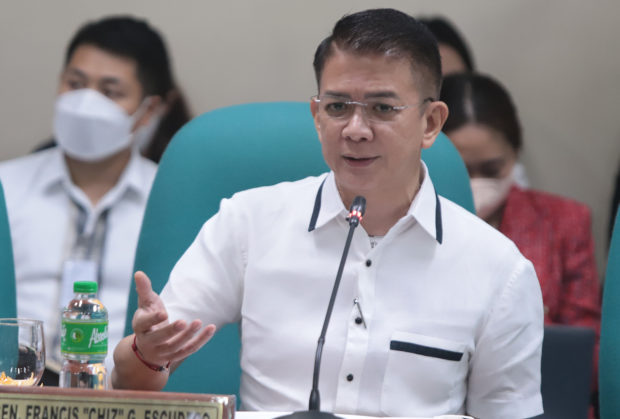Economic managers ‘ambivalent’ about Maharlika fund – Escudero
MANILA, Philippines — While President Ferdinand Marcos Jr. has certified as urgent the passage of the Maharlika Investment Fund bill in the House of Representatives, some of his economic managers were apparently ambivalent about the importance of the sovereign fund, Sen. Francis Escudero said on Sunday.
In a radio interview, Escudero said the president’s economic team has practically passed to the senators its responsibility of ensuring that the measure creating the sovereign wealth fund would be free from defect.
“The ball is in their hands. But when we started the hearing [in the Senate last Wednesday] the secretary of finance was not there. He came in late,” Escudero said, referring to Finance Secretary Benjamin Diokno.
“I thought they are interested about this and want to expedite [its passage]? With all the answers provided by their representative, in the person of National Treasurer Rhea de Leon, are their hands already tied on this? Are those really their answers?” he said.
The former chair of the Senate finance committee also pointed out that the House version of the measure that was approved in December and its counterpart bill in the Senate, which was filed by Sen. Mark Villar, lacked several key components and safeguards to make it attractive to would-be investors.
For one, he said financial officials could not explain the main purpose and objective of the Maharlika fund, which was not even mentioned when Marcos delivered his first State of the Nation Address last year.
Concerns raised
“They should have ironed these out before facing us,” Escudero said.
“[The Senate hearing] is not the appropriate venue to have a debate among yourselves. The debate should just be between the Senate and the executive branch, not among the agencies under the executive branch,” he stressed.
As finance secretary, he said Diokno sits as chair of the state-owned Land Bank of the Philippines, which raised several concerns over the plan to use P50 billion of its funds as seed money for the Maharlika fund.
“[Diokno] is also the leader of the economic managers who are defending and pushing for this bill. Is he aware of the Landbank’s comments on the ROI (return on investment) and capital reserve requirement?” Escudero said.
Clear goals
“If they really want this and they are convinced about its [value], then Landbank should not have made that comment in the first place if they only addressed its concerns from the start,” he continued.
“Originally, they actually planned to make separate presentations [to the senators]. But I told them that they should have just one [presentation]. The economic team should stand as one, right?” Escudero added.
He said the existing sovereign wealth funds, such as those established by Singapore and the United Arab Emirates, had clear goals that the state-financed investment portfolio wanted to achieve.
“We cannot just copy what the other countries are doing,” Escudero said.
The senator likewise reiterated that Landbank and the Development Bank of the Philippines, which would be required to invest P25 billion, should not be compelled to bankroll the Maharlika fund since it would expose their funds to risks.
